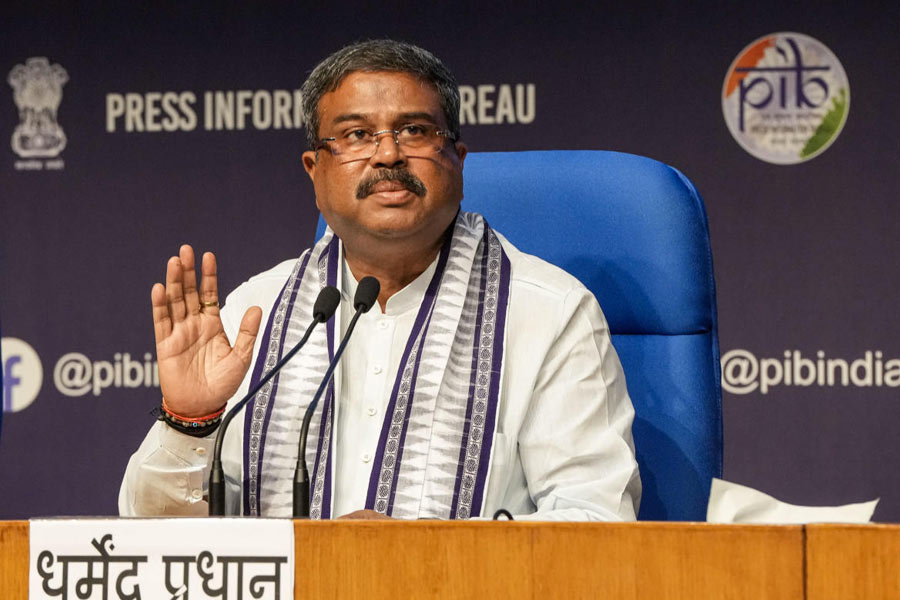The National Council for Educational Research and Training (NCERT) has continued with the changes made to school textbooks in 2022-23, such as deletion of matter on Jawaharlal Nehru and the Mughals.
The deletions had attracted allegations of ideological bias and the reasoning that academic activities had returned to normal after the pandemic, which the government had cited for the pruning.
In 2023-24, the council added new content but did not restore the excluded chapters, prompting academics to allege that the contents were dropped on political grounds.
In the Lok Sabha, Congress member Shafi Parambil asked the government if the NCERT had changed the textbooks for secondary classes and the rationale behind the tweaks. Education minister Dharmendra Pradhan cited Covid-19 as the primary reason for the exclusions.
“Specific criteria were also developed for the rationalisation of content load, including overlapping content, high-difficulty level, etc. These textbooks continue from 2022-23 session onwards. Subsequently, some updates have been included in 2023-24 due to evolution of knowledge, facts and their interpretations,” Pradhan said in a written reply.
A government official said there was no plan to restore the excluded content for next year too. The existing books may remain unchanged for Classes V, VIII, X and XII in 2025-26. The NCERT introduced new books for Classes III and VI.
The content excluded in 2022 created a row as it suggested a pattern. The government dropped content on the Mughals, the caste system, the rise of Islam and Nehru.
Nandita Narain, a retired St Stephen’s College faculty member, said: “Covid-19 was an excuse to change the books. They dropped large portions of Mughal history, Islam and social hierarchy. The changes were ideologically and politically motivated. Even after Covid, they were not restored.”











